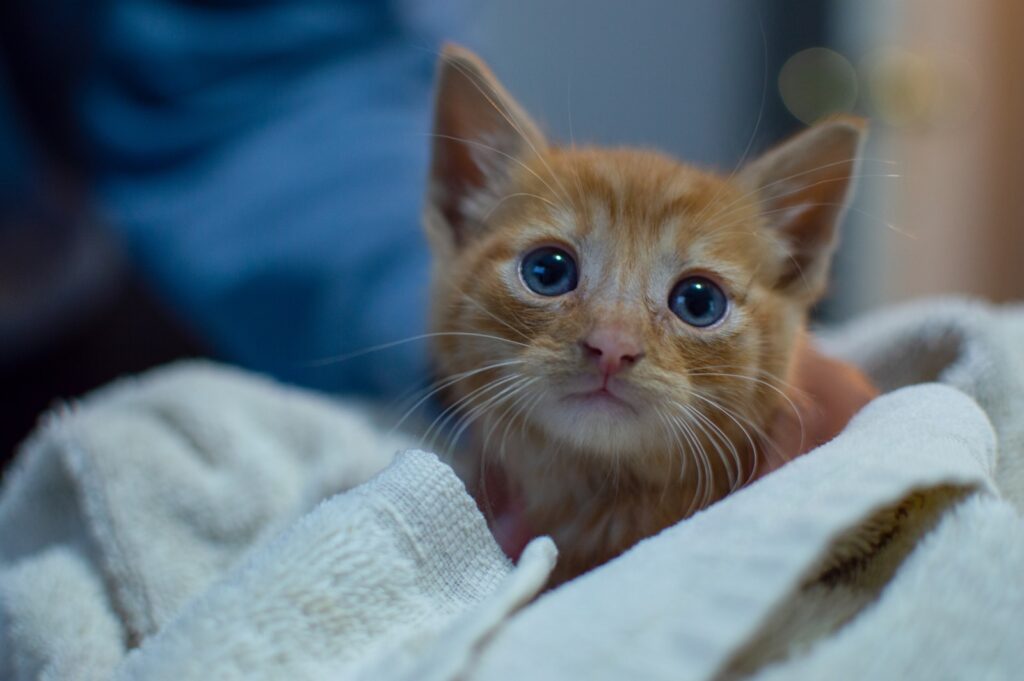
If you are thinking about adding a furry companion to your life, cat adoption is a great option. Adopting a cat can save a life, reduce animal overpopulation, and support local shelters and rescue groups. But how do you find the right cat for you? And what are the steps involved in the cat adoption process? In this article, we will answer these questions and more, to help you prepare for your new feline friend.
How to Adopt a Cat
Adopting a cat is not as simple as walking into a shelter and picking one out. There are many factors to consider before you make this important decision. Here are some tips to help you adopt a cat:
- Do your research. Learn about different cat breeds, personalities, and needs. Think about what kind of cat would suit your lifestyle, budget, and preferences. For example, do you want a playful kitten or a calm senior? A long-haired or short-haired cat? A purebred or a mixed breed?
- Visit different shelters and rescue groups. There are many places where you can find adoptable cats, such as animal shelters, humane societies, foster homes, and online platforms. Visit different locations and websites to see the available cats and learn about their histories, health, and behavior.
- Meet the cats. Once you have narrowed down your options, it's time to meet the cats in person. Spend some time with each cat and observe their reactions to you and the environment. Ask the staff or volunteers questions about the cat's personality, habits, and needs. Try to interact with the cat in different ways, such as playing, petting, and holding.
- Choose your cat. After meeting the cats, you should have a better idea of which one is the best match for you. Trust your instincts and choose the cat that you feel a connection with. Remember that every cat is unique and has its own quirks and charms.
Cat Adoption Process
Once you have chosen your cat, you will need to complete the cat adoption process. This may vary depending on the shelter or rescue group, but generally involves the following steps:
- Fill out an application form. This is to ensure that you are a suitable adopter and that you can provide a good home for the cat. You may need to provide information about yourself, your household, your living situation, your experience with cats, and your expectations.
- Pay an adoption fee. This is to cover some of the costs of caring for the cat, such as spaying/neutering, vaccinations, microchipping, and medical treatment. The adoption fee may vary depending on the age, breed, and condition of the cat.
- Sign an adoption contract. This is to confirm that you agree to the terms and conditions of the adoption, such as providing proper care, veterinary visits, identification tags, and returning the cat if necessary.
- Take your cat home. Congratulations! You are now ready to take your new feline friend home. Make sure you have prepared everything you need for your cat's arrival, such as food, water, litter box, toys, bed, carrier, and scratching post.
Finding the Right Cat for You
Finding the right cat for you is not only about appearance or breed. It's also about personality and compatibility. Here are some factors to consider when finding the right cat for you:
- Your lifestyle. Think about how much time, energy, and money you can devote to your cat. Some cats are more active, social, and demanding than others. Some cats require more grooming, training, and attention than others.
- Your family. Think about who lives in your household and how they will interact with your cat. Some cats are more friendly, tolerant, and adaptable than others. Some cats get along better with children, other pets, or strangers than others.
- Your preferences. Think about what kind of cat personality and behavior you prefer. Some cats are more independent, quiet, and aloof than others. Some cats are more affectionate, vocal, and curious than others.
Kitten Adoption
Kittens are adorable and irresistible, but they also come with special challenges and responsibilities. Here are some pros and cons of kitten adoption:
- Pros:
- Kittens are cute, playful, and fun.
- Kittens are easier to train and socialize.
- Kittens can adapt more easily to new environments and situations.
- Cons:
- Kittens are more energetic, mischievous, and destructive.
- Kittens require more supervision, care, and attention.
- Kittens may have unknown health or behavioral issues.
Senior Cat Adoption
Senior cats are often overlooked and neglected, but they also have a lot to offer. Here are some pros and cons of senior cat adoption:
- Pros:
- Senior cats are calm, gentle, and loving.
- Senior cats are already trained and well-behaved.
- Senior cats are grateful and loyal.
- Cons:
- Senior cats may have health or mobility issues.
- Senior cats may have special dietary or medical needs.
- Senior cats may have a shorter lifespan.
Special Needs Cat Adoption
Special needs cats are those who have physical or mental disabilities, such as blindness, deafness, paralysis, chronic illness, or behavioral problems. They may require extra care, attention, and accommodation, but they can also be wonderful companions. Here are some pros and cons of special needs cat adoption:
- Pros:
- Special needs cats are unique and inspiring.
- Special needs cats can bond deeply with their owners.
- Special needs cats can enrich your life and teach you valuable lessons.
- Cons:
- Special needs cats may have high medical or veterinary costs.
- Special needs cats may have limited mobility or activity levels.
- Special needs cats may have emotional or behavioral challenges.
Bonded Pair Cat Adoption
Bonded pair cats are those who have formed a strong attachment to each other and cannot be separated. They may be siblings, friends, or mates. They may have been together for a long time or have gone through a traumatic experience together. Adopting a bonded pair can be rewarding but also challenging. Here are some pros and cons of bonded pair cat adoption:
- Pros:
- Bonded pair cats are happy and comfortable with each other.
- Bonded pair cats can keep each other company and entertained.
- Bonded pair cats can reduce stress and loneliness for themselves and their owners.
- Cons:
- Bonded pair cats may have difficulty adjusting to new environments or people.
- Bonded pair cats may require more space, resources, and attention.
- Bonded pair cats may not get along with other pets or children.
Cat Adoption Near Me
If you are looking for cat adoption near you, there are many ways to find local shelters and rescue groups. Here are some suggestions:
- Use online platforms. There are many websites and apps that can help you find adoptable cats near you, such as Petfinder, Adopt-a-Pet, ASPCA, Best Friends Animal Society, etc. You can filter your search by location, age, breed, gender, size, color, etc.
- Contact local organizations. You can also contact your local animal shelter, humane society, veterinary clinic, pet store, or community group to ask about cat adoption opportunities. They may have information about available cats or referrals to other sources.
- Ask around. You can also ask your friends, family, neighbors, co-workers, or social media contacts if they know of any cat adoption options near you. They may have personal experience or recommendations that can help you find your perfect feline friend.
Free Cat Adoption
If you are looking for free cat adoption, you may be able to find some options depending on your location and situation. However, you should also be aware of the potential risks and responsibilities involved in free cat adoption. Here are some pros and cons of free cat adoption:
- Pros:
- You can save money on the initial adoption fee.
- You can help a cat in need of a home.
- You can avoid supporting unethical breed
- Cons:
- You may not know the cat's health or history.
- You may have to pay more for veterinary care or other expenses.
- You may encounter scams or frauds.
Here are some tips to help you find free cat adoption safely and responsibly:
- Do your research. Before you adopt a free cat, make sure you know as much as possible about the cat's background, health, and behavior. Ask the previous owner or caretaker for proof of vaccination, spaying/neutering, microchipping, and medical records. If possible, visit the cat in person and observe its condition and temperament.
- Be prepared. Even if you don't have to pay an adoption fee, you still need to provide proper care and maintenance for your cat. Make sure you have enough money, time, and space to accommodate your cat's needs, such as food, water, litter box, toys, bed, carrier, scratching post, grooming tools, etc. You also need to plan for regular veterinary visits, emergency situations, and potential health issues.
- Be cautious. Beware of any offers that seem too good to be true, such as purebred cats for free, cats that come with accessories or supplies, cats that are shipped from far away, etc. These may be signs of scams or illegal activities. Always verify the identity and credibility of the person or organization offering the cat. Never send money or personal information online or over the phone. Always meet in a public and safe place and bring someone with you.
Conclusion
Cat adoption is a wonderful way to find your perfect feline friend and make a positive difference in the world. However, it also requires careful consideration and preparation. By following this guide, you can make sure that you are ready for your new cat and that your cat is ready for you. We hope that this article has helped you learn more about cat adoption and that you will soon enjoy the companionship of your new furry family member.
